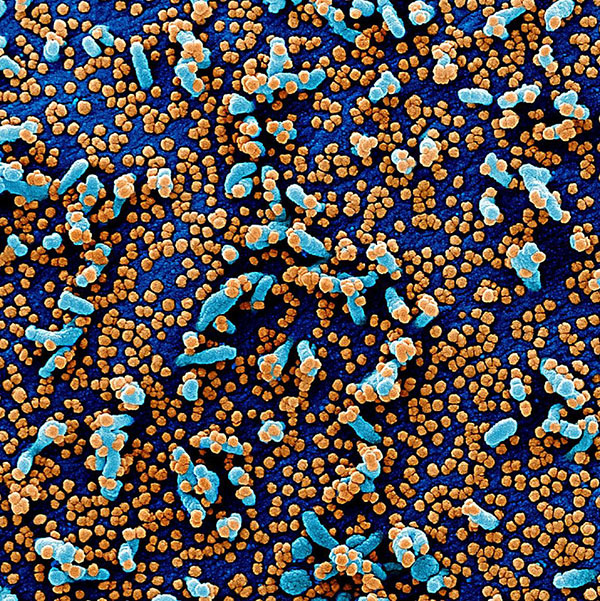NIH-Moderna investigational COVID-19 vaccine shows promise in mouse studies
Vaccine currently being evaluated in Phase 3 clinical testing
The investigational vaccine known as mRNA-1273 protected mice from infection with SARS-CoV-2, the virus that causes COVID-19, according to research published today in Nature. Scientists at the National Institute of Allergy and Infectious Diseases (NIAID), part of the National Institutes of Health, and the biotechnology company Moderna, based in Cambridge, Massachusetts, along with collaborators from the University of North Carolina at Chapel Hill, Vanderbilt University Medical Center in Nashville, and the University of Texas at Austin conducted the preclinical research. NIAID Vaccine Research Center (VRC) scientists worked with investigators from the University of Texas at Austin to identify the atomic structure of the spike protein on the surface of the novel coronavirus. This structure was used by VRC and Moderna in the development of the vaccine candidate.
The findings show that the investigational vaccine induced neutralizing antibodies in mice when given as two intramuscular injections of a 1-microgram (mcg) dose three weeks apart. Additional experiments found that mice given two injections of the 1-mcg dose and later challenged with SARS-CoV-2 virus either 5 or 13 weeks after the second injection were protected from viral replication in the lungs and nose. Importantly, mice challenged 7 weeks after only a single dose of 1 mcg or 10 mcg of mRNA-1273 were also protected against viral replication in the lung.
This page was last updated on Friday, January 21, 2022
